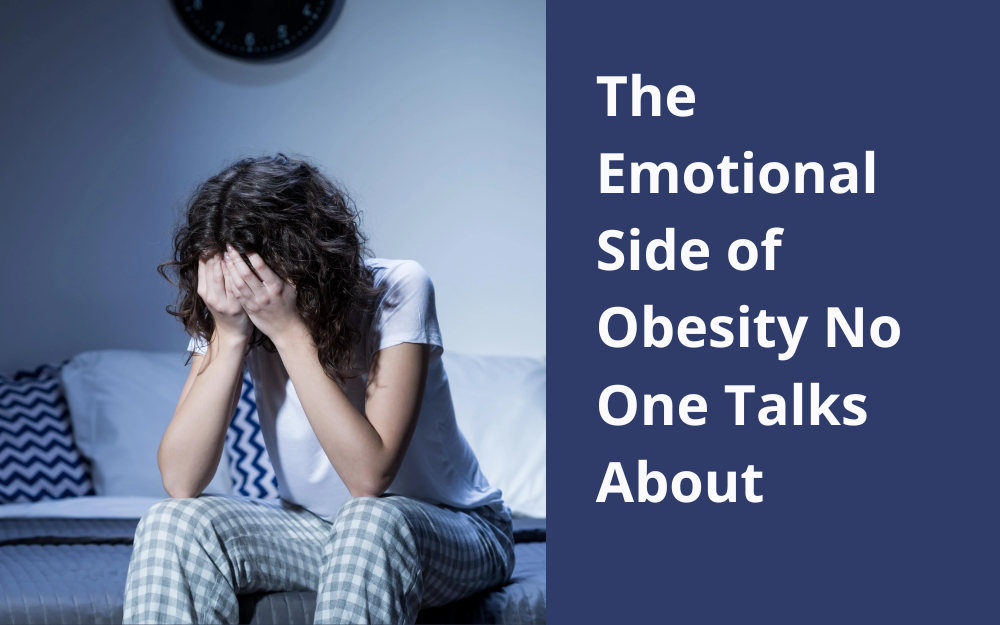Obesity is more than just a physical condition. While most conversations revolve around diet charts, gym routines, and medical advice, there’s a side to obesity that remains hidden — the emotional weight people carry with their physical weight. It’s silent. It’s heavy. And surprisingly, it affects every part of a person’s life more than we often realise.
In this blog, we explore the emotional impact of obesity — the fears, frustrations, and feelings that often go unnoticed but need just as much care and attention.
A Gentle Nudge Toward Change
If you or someone you love is struggling silently, know that change doesn’t have to be hard, and help doesn’t have to be harsh. An Obesity Management Program that respects emotional well-being can be life-changing.
Madhavbaug understands that everybody has a story, and every journey deserves kindness. Contact them to begin a path where emotional healing and physical health walk hand-in-hand.
When Weight Feels Heavier Than It Looks
For many, being overweight is not just about struggling to fit into clothes or facing health problems. It’s about self-doubt, guilt, and emotional exhaustion. The emotional side of obesity can show up in unexpected ways:
- Feeling judged in public spaces
- Avoiding mirrors or photographs
- Comparing yourself to others constantly
- Assuming you’ll be rejected socially or romantically
- Feeling like you have to “prove” your worth
These experiences are often internal battles, silently fought by millions every day.

The Link Between Emotions and Eating Habits
Let’s be honest — most of us don’t just eat because we’re hungry. Emotions play a big role. Stress, sadness, loneliness, or even boredom can lead us straight to the fridge.
Emotional Triggers That Lead to Overeating:
| Emotion | Typical Reaction | Common Food Cravings |
|---|---|---|
| Stress | Quick fix for comfort | Sugary or salty snacks |
| Loneliness | Eating for emotional “company” | Ice cream, chocolates |
| Sadness | Soothing internal pain | Fried foods, heavy meals |
| Boredom | Seeking stimulation through food | Junk food, random snacking |
Over time, these patterns form habits. And habits shape health, both emotional and physical.
Why Obesity Affects Mental Health
Obesity is not just about how your body looks — it’s also about how your mind feels. When people are constantly judged, they start to judge themselves. This self-judgment often leads to:
- Low self-esteem
- Anxiety and social fear
- Chronic stress
- Depression or mood swings
Imagine trying to improve your health while fighting all of that silently. It’s not easy.
Society’s Silent Pressure: The Weight of Expectations
Let’s face it — society can be brutal. From rude comments to unrealistic beauty standards, people with obesity often feel invisible or judged, no matter how hard they try. This leads to:
- Avoiding social events
- Shutting down emotionally
- Losing motivation to even try
It becomes a cycle: emotional pain leads to weight gain, and weight gain leads to more emotional pain.
The Unspoken Support Everyone Deserves
Everyone talks about workout plans and low-calorie diets. But very few talk about emotional support, which is just as important in any Obesity Management Program.
Here’s what makes a difference:
Key Emotional Needs in Obesity Care:
| Emotional Need | How It Helps |
|---|---|
| Kind communication | Encourages self-acceptance |
| Safe environment | Reduces fear of judgment |
| Mental health guidance | Helps break emotional eating cycles |
| Community support | Reduces isolation and boosts motivation |
When these emotional needs are met, the physical transformation becomes more achievable and sustainable.
Healing the Heart First: Why Emotional Wellness Comes Before Physical Change
Before the first step on a treadmill, before the first change in a diet plan, comes emotional healing. Without addressing the emotional roots, no plan sticks for long. People need:
- Encouragement, not criticism
- Hope, not pressure
- Belief in progress, not perfection
Real transformation begins when the heart feels safe enough to hope again.
Also Read: https://madhavbaug.org/health-corner/ayurvedic-diet-plan-for-weight-loss/
What If We Started With Compassion?
Imagine if, instead of judgment, every person struggling with obesity were met with compassion and curiosity. What if we asked, “How are you feeling?” instead of “Why don’t you just lose weight?” The truth is, people already know what society expects of them. They’ve heard it, read it, and internalised it. What they need is someone who listens, not someone who lectures.
Emotional weight doesn’t show up on a weighing scale, but it affects every decision, every relationship, and every dream. That’s why healing must go deeper than just numbers on a BMI chart. It must reach the heart.
Change becomes possible when someone feels seen, safe, and supported. That’s not just good for emotional health — it’s the foundation of lasting physical transformation.
So the next time you think of obesity, don’t just think about weight. Think about what’s weighing someone down emotionally, too.
A Gentle Nudge Toward Change
If you or someone you love is struggling silently, know that change doesn’t have to be hard, and help doesn’t have to be harsh. An Obesity Management Program that respects emotional well-being can be life-changing.
Madhavbaug understands that every body has a story, and every journey deserves kindness. Contact them to begin a path where emotional healing and physical health walk hand-in-hand.
For more insightful details, do visit Techners
















Leave a Reply